The documentary is titled after Arkadaş Z. Özger’s poem “Hello My Dear” which had caused much controversy in the period it was first published. Considered to be in defiance of heteronormativity, the said poem includes references to the poet’s personality, his family, his relationship to the society, and his “unexpected” death, which came three years after its publication. Today, 50 years after it was written, the documentary follows these same lines in the poem utilising cinematic elements. The documentary also rediscovers the poetics; reaches out to the family, the comrades, the friendships, departing from the official historical accounts, cognizant of his experience of otherness, in pursuit of the “lost” portrait of Arkadaş Z. Özger.
Related Movies
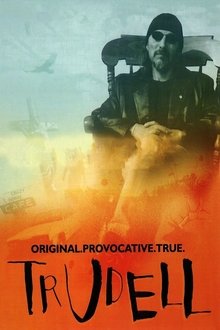
Trudell (2005)
A chronicle of legendary Native American poet/activist John Trudell's travels, spoken word performances, and politics.

There We Are John... (1993)
In this revealing documentary, Ken McMullen creates an elegant portrait of artist and filmmaker Derek Jarman, based on an interview conducted by John Cartwright. The questions are unobtrusive, allowing Jarman to reflect on his major films. Despite the debilitating effects of serious illness, we see an artist with his inner vision unimpaired; still humorous, self effacing and disarmingly charming.
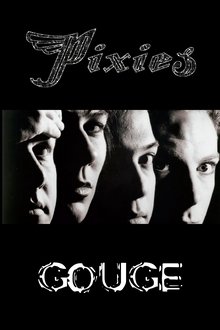
Pixies: Gouge (2004)
Gouge - a documentary tracing The Pixies' story featuring interviews with Bono, David Bowie, Thom Yorke and Jonny Greenwood (Radiohead), Graham Coxon and Alex James (Blur), Fran Healy and Andy Dunlop (Travis), P J Harvey, Tim Wheeler (Ash), Gavin Rossdale (Bush) and Badly Drawn Boy.
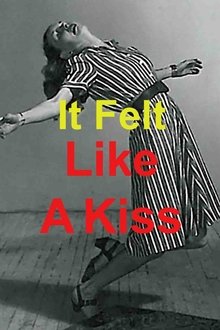
It Felt Like a Kiss (2009)
The story of America's rise to power starting with 1959, using archival footage and US pop music to highlight the consequences to the rest of the world and in the peoples' minds.

Stefan Zweig - Histoire d'un européen (2013)
Stefan Zweig was the most read author of the German language in the 1930s. He believed in a united, peaceful Europe and travelled most parts of the world. He was a pacifist and was torn apart by to the cruelties and horrors of the second World War. He committed suicide in Brasil. This documentary tells the story of his life.

A Daughter’s Memory (2019)
Indonesia, 1965: hundreds and even thousands of people are arrested without warrant. Some did come back, the others lost without trace. Svet, one of the survivors of the Indonesian dark history recounts the memory she had of her father, whom she believes to be responsible for the 1965 tragedy.
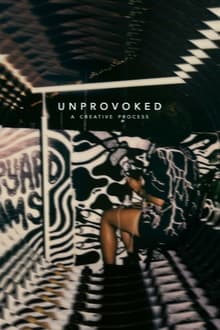
Unprovoked: A Creative Process (2021)
Artist Taylor Denise sets out to make her first painting, which also happens to be her largest work to-date. As she embarks on this creative process of making shit because it looks cool, she's met with comradery, debauchery, and people's brains interrupting art whatever way they want to-ery.
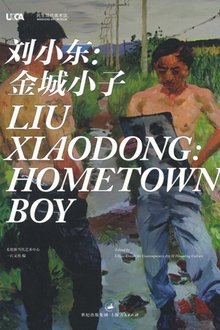
Liu Xiaodong: Hometown Boy (2011)
One of the best-known Chinese figurative painters, Liu Xiaodong goes back to his hometown of Jincheng, in the province of Liaoning (North-East China), to re-paint again friends and relatives after several years have gone by. With a soundtrack by famed composer Lim Giong (Millennium Mambo, The Assassin).

The Complete History of America's Railroads (2010)
No matter what your age you'll love watching this impressive and comprehensive story of the development of railroading in America. Rail enthusiasts as well as history buffs, teachers and home schoolers, plus kids of all ages will appreciate this magnificent rail adventure covering live action historic operating railroads, rare photos of drawings and valuable memorabilia, and live action re-enactments. Featuring spectacular cinematography and an inspiring musical score, this Award-Winning four part DVD covers over one-hundred years of railroading evolution.

The Satanic Verses Affair (2009)
Twenty years ago, novelist Salman Rushdie was a wanted man with a million pound bounty on his head. His novel, The Satanic Verses, had sparked riots across the Muslim world. The ailing religious leader of Iran, the Ayatollah Khomeini, had invoked a little-known religious opinion - a fatwa - and effectively sentenced Rushdie to death. This film looks back on the extraordinary events which followed the publication of the book and the ten year campaign to get the fatwa lifted. Interviews with Rushdie's friends and family and testimony from leaders of Britain's Muslim community and the Government reveal the inside story of the affair.

Grandpa Called It Art (1944)
This MGM Passing Parade series short takes a look at changing definitions of art in the United States.

When We Were Kings (1996)
It's 1974. Muhammad Ali is 32 and thought by many to be past his prime. George Foreman is ten years younger and the heavyweight champion of the world. Promoter Don King wants to make a name for himself and offers both fighters five million dollars apiece to fight one another, and when they accept, King has only to come up with the money. He finds a willing backer in Mobutu Sese Suko, the dictator of Zaire, and the "Rumble in the Jungle" is set, including a musical festival featuring some of America's top black performers, like James Brown and B.B. King.
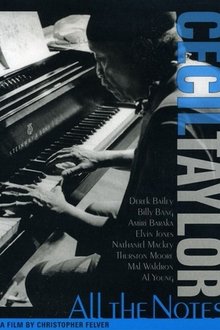
Cecil Taylor: All The Notes (2005)
Cecil Taylor was the grand master of free jazz piano. "All the Notes" captures in breezy fashion the unconventional stance of this media-shy modern musical genius, regarded as one of the true giants of post-war music. Seated at his beloved and battered piano in his Brooklyn brownstone the maestro holds court with frequent stentorian pronouncements on life, art and music.
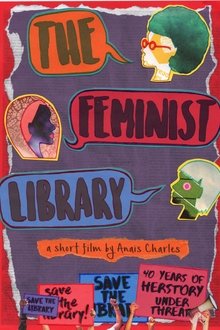
The Feminist Library (2016)
The Feminist Library: A Short Film was made in support of the Save the Feminist Library Campaign, documenting a crucial moment in the library's herstory as it fights for its very survival. Shortlisted for the Women's History Network Community Prize, the film revisits the story of the library's inception and emphasises why feminism remains essential today.

Cybersocialism: Project Cybersyn & The CIA Coup in Chile (2021)
A documentary on the rise and fall of Project Cybersyn, an attempt at a computer-managed centralized economy undertaken in Chile during the presidency of Salvador Allende.
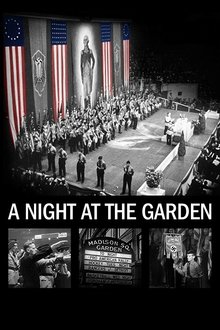
A Night at the Garden (2017)
Archival footage of an American Nazi rally that attracted 20,000 people at Madison Square Garden in 1939, shortly before the beginning of World War II.
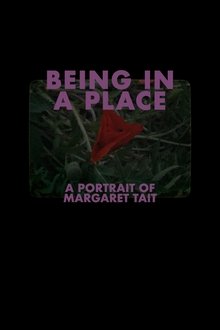
Being in a Place: A Portrait of Margaret Tait (2024)
Drawing on a wealth of unseen archival material and unpublished notebooks, the film weaves a complex and personal portrait of Margaret’s life, from the perspective of a fellow artist sensitive to the potential Margaret envisaged for film as a poetic medium.

Dagbog fra midten (2009)
Documentary director Christoffer Guldbrandsen portrays in "Diary from the middle 'Party New Alliance birth, rise and fall. The film is a rare direct entry to the political backstage, where Guldbrandsen followed Naser Khader, Gitte Seeberg, Anders Samuelsen and the party's spin doctors at close range from party formation in May 2007 through the election campaign and to the day Naser Khader arises out of his own party . Brutally honest film shows how emotions and personal relationships controls the crucial choice in politics. Its depiction of batch peak disagreement on New Alliance political project, internal disputes about strategy and tactics as well as uafstemte expectations for cooperation offers the audience a valuable key to understanding one of the most spectacular phenomena in modern Danish politics.
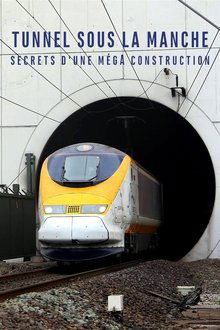
Building the Channel Tunnel (2019)
The Channel Tunnel linking Britain with France is one of the seven wonders of the modern world but what did it take to build the longest undersea tunnel ever constructed? We hear from the men and women, who built this engineering marvel. Massive tunnel boring machines gnawed their way through rock and chalk, digging not one tunnel but three; two rail tunnels and a service tunnel. This was a project that would be privately financed; not a penny of public money would be spent on the tunnel. Business would have to put up all the money and take all the risks. This was also a project that was blighted by flood, fire, tragic loss of life and financial bust ups. Today, it stands as an engineering triumph and a testament to what can be achieved when two nations, Britain and France put aside their historic differences and work together.

De Gaulle, the Last King of France (2017)
Charles de Gaulle, the first president (1958-1969) of the Vth Republic, France’s current system of government, left his mark on the country . He was statesman of action and has been compared to a monarch. This film depicts the general’s personality through the great events of his presidential term, at a time when the world was undergoing considerable changes.